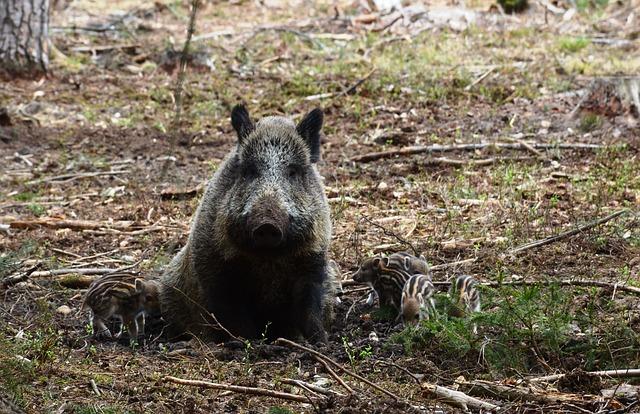
The Beat
Targeting motorcycle outlaws
Anti-bikie detectives in the Echo Taskforce arrested 21 people affiliated with the Comancheros motorcycle gang in Melbourne this week, who’ve been connected with previous explosions, shootings and fires. Police seized drugs and cash from 26 homes and one factory across Melbourne in the pre-dawn raids. Among the 19 people charged were some key players in the gang—since this includes the ‘right hand man’ to the Comancheros’ boss, there’ll be some problems for the gang’s leadership. Police assistant commissioner Stephen Fontana told reporters the investigation had ‘disrupted a lot of activity throughout that period, including other drive-by shootings, non-fatal shootings and firebombing.’
Battling bikie gun-running
News Corp revealed yesterday that in September last year a joint operation between Australia and the US saw the seizure of 4,683 unmarked firearms reportedly bound for Aussie bikies. The AFP’s National Anti-Gang Squad worked with US state police and the US Department of Homeland Security Investigations team to seize the guns in the US before they could be imported into Melbourne and disseminated around Australia. Justice Minister Michael Keenan announced the latest figures from the National Anti-Gang Squad this morning—since its creation in 2013, over 1000 offenders have been arrested and more than 5,600 illegal firearms have been confiscated.
Good boy does good work
After eight years of working like a dog, AFP canine Louie is retiring from a life of keeping Australia’s borders safe. His career highlights include detecting almost $20 million worth of drugs and contraband passing through Brisbane Airport. Minister Michael Keenan presented a Certificate of Commendation for Service, making Louie the first AFP dog to collect the award.
CT Scan
Effects of populism on CT
On Tuesday, the European Court of Justice ‘waded into the politically explosive issue of public expressions of Muslim identity’, declaring that private employers can legally ban female workers from wearing head scarves while at work. Per the ruling, the ban ‘does not constitute direct discrimination… so long as such prohibitions [apply] to religious garb from all faiths.’ The ruling comes as Europe is experiencing a ‘new wave of popular fury’ and a rise in anti-immigrant, anti-Islam sentiment, with elections are due to take place in France and Germany in the foreseeable future.
Individuals took to Twitter to vent their frustrations about the judgement, which some think unfairly targets Muslim communities. Like other exclusionary policies (like the US immigration ban), they fear these new restrictions may increase radical sentiment within certain communities by indirectly discouraging Muslim women from the workplace, which in turn could have a negative effect on counterterrorism operations.
Is Prevent targeting the wrong individuals?
The British government has come under fire yet again over its controversial counterterrorism program Prevent. Amid concerns that it undermines free speech and discriminates against Muslims, the government was once again ordered to appoint an independent review Monday to assess the programs efficacy.
It seems ironic that the program still largely comes under criticism for targeting Muslim communities—last year, one in four extremists reported to the program actually held far-right sympathies.
Checkpoint
No wet feet on dry land
The US Customs and Border Protection’s Air and Marine Operations intercepted a people smuggling boat carrying 30 Cuban migrants near the coast Key Largo, Florida, last Sunday. It’s the first large group of migrants that’ve been intercepted since Obama repealed the longstanding ‘wet-foot, dry-foot’ immigration policy, which allowed any Cuban on US soil to apply for permanent residence, and those intercepted at sea to apply after one year. Cuban asylum seekers are now treated like other irregular migrants. Five people, including one smuggler, escaped into the mangroves before being caught by US border patrol. The remaining migrants will be returned to Cuba.
Another win for the ABF
On the home front, last week the Australian Border Force charged a Victorian man for importing a child-like sex doll from China in a package that was initially declared as a mannequin. 21 separate cases of child sex doll importation have been detected in Australia since 2013, and the ABF reports they’re becoming more frequent. The ABF usually intercepts alleged child sex doll imports at the border, but police also regularly conduct domestic raids.
First Responder
Kathmandu camp destroyed
Nepalese police have bulldozed the largest temporary camp housing around 2,000 victims of the 2015 earthquake, to force people to return to their villages and rebuild their homes. The 7.8 magnitude earthquake killed 9,000 people and destroyed nearly a million homes and structures; only 76,000 have been rebuilt and not all affected families have received even the first instalment of government rebuilding aid.
Robot meltdown
Six years on from the Fukushima disaster, decommissioning the Daiichi plant is running behind schedule—so far, clean-up of one out of three reactors is only 20% complete. Some of the blame has landed on the shoulders of the plant operator, which is said to be struggling to develop ‘robots capable of penetrating the most dangerous parts’. Several robots have “died” trapped in the wreckage after radioactive materials destroyed their wiring.
Boars take over
Meanwhile, some residents are returning to nearby Japanese town Namie—located just two and a half miles from the Daiichi plant—now the evacuation order has been lifted. But public safety concerns remain, thanks to an unexpected by-product of the disaster—radioactive wild boars that are roaming free in the town. Namie’s Mayor even went so far as to say: ‘it is not really clear now which is the master of the town, people or wild boars’.